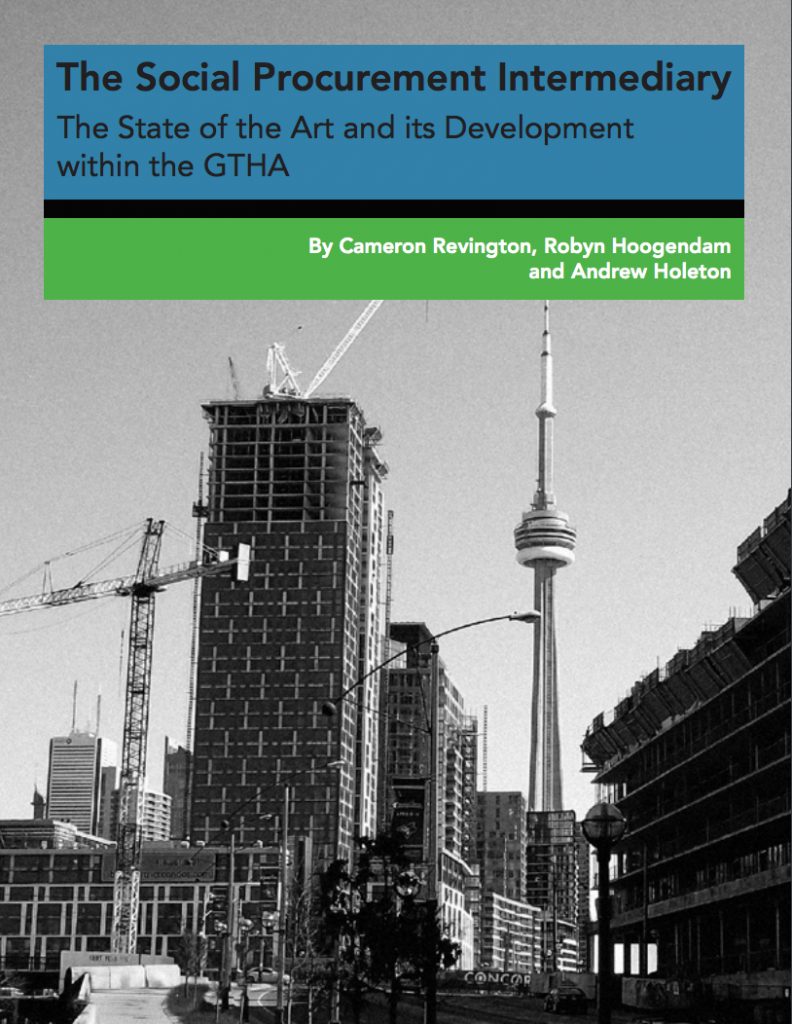Social procurement is a process that targets social impact as a desired or required quality in goods or services to be purchased. Increasingly it is commonly practiced by individuals, businesses and governments around the world. While Canada has yet to tap into the full potential of social procurement, there is growing recognition of its ability to effect positive change in communities and vulnerable populations.
The Learning Enrichment Foundation’s research-based report critically examines the state of social procurement in the Greater Toronto and Hamilton Area (GTHA), through the lens of global social procurement movements. Researchers Cameron Revington, Robyn Hoogendam and Andrew Holeton specifically study the potential role of a social procurement intermediary – a broker or matchmaker between suppliers and purchasers. How might social purchasing progress if there were an intermediary connecting the purchasing power of businesses, governments and nonprofit organizations with the productivity of social enterprises in the GTHA?
The findings show that social procurement intermediaries in other parts of the globe increase opportunities for social enterprises to engage in larger contracts and tenders. They also increase the visibility of the social enterprise sector. The report maps out the features that are essential in an intermediary. Finally, the report identifies challenges relating directly to the social procurement intermediary and the local sphere in which the intermediary would operate, and makes recommendations to address them. The issues and considerations identified are specific to the GTHA but have transferable learning to others studying similar goals.
This report was made possible by the support of Metcalf’s Inclusive Local Economies program.


